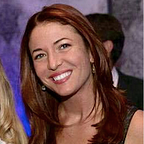At The End of the World
NarrativeRx Virtual Workshop, Sunday 19th April, 2020
In this week’s Narrative Medicine workshop, we explored “Ex Machina” from Camille Rankine’s collection Incorrect Merciful Impulses. 18 old and new friends joined the call, hailing from across the US to as far away as Australia, to connect and co-create through poetry. (Apologies to our friends in the UK who couldn’t attend due to the timing!)
Rankine’s poem begins with the prescient lines, “Every year is the year / the world ends / as I understand it” and moves headlong, without punctuation, toward three trenchant questions: “what we are capable of / what great hope / what will become of me.” In a time defined by pandemic, such questions are more relevant than ever.
As different readers read the poem aloud, we noticed the lack of punctuation inspired radically different interpretations. An unanticipated pause or inflection could shift the entire tone of the poem from despair to hope. Without the guidance of punctuation, we had to make a choice about meaning, however unconscious that choice might have been.
From the very first lines, we are given the option of interpretation: “Every year is the year / the world ends / as I understand it.” Is there a defeated shrug behind the phrase “as I understand it,” or is the narrator saying that every year challenges her understanding of the world, and every year she has the chance to understand it anew?
We wondered if this was precisely the point of the poem’s title, “Ex Machina” (from the machine). Though we are surrounded by machinery and technology, unlike machines, we have a choice, and the poem’s structure highlights our capacity to choose our fates: “what we are capable of / what great hope / what will become of me.”
“Ex Machina” prompted so many rich discussions about what it means to be human, barbarous, animal, connected, and still-becoming in a world that is constantly ending “as [we] understand it.”
Inspired by Rankine’s insightful poem, we responded to the creative writing prompt “What will become of me?” As we shared our writing with the group, new questions emerged: how is it possible to be fully present when the world seems to be rushing headlong into the future? How do we allow ourselves to be naked, exposed, bare, and uncomfortable when we are so accustomed to comfort and complacency? And finally, will this song of our lives be a dark lament or a joyous cabaret?
Though we didn’t land on any answers, we all discovered something new in the questions, and we were all changed by the poem and the perspectives of our friends from around the world.
If you participated in the workshop, please feel free to share your reflective writing in the comments below. (Remember this is a public space where confidentiality is not assured.) If you didn’t participate in the workshop, but you enjoyed “Ex Machina” and you’d like to reply to the writing prompt, we welcome your writing in the comments as well! Just set a timer for 5 minutes of free writing and post your exercise below without editing. We’d love to see where this poem took you!
If you enjoyed this class and you’re ready for more, please join us for an 8-week Narrative Medicine Program designed for healthcare professionals starting on Monday 4th, May 2020.
Unlike this live ZOOM call, our program takes place asynchronously, so you can complete assignments at your own pace with weekly “due dates” and discussion boards that keep our classroom collaborative and co-creative.
Each week, we’ll be studying one artwork with corresponding philosophy, discussion, and reflective writing activities that will refine your ability to listen and engage with stories in a clinical setting.
Find out more at NarrativeRx.com, and join our Facebook Group for an invitation to our next ZOOM workshop!
Ex Machina
Every year is the year
the world ends
as I understand it
X is to blame
or aerosol or the barbarity
of X in which we all partake
as is our way
we have come too far
to turn away from this
kernel that shapes
us into other
than animal or just
animal enough
to breed and break
it is a science
the study of what it is
in this mind and muscle
that makes us
sway the weight of us
toward give or take in the bare
face of each
open-mouthed need
and what is our mistake this clamor
that trails us that shakes us to sleep
what we are capable of
what great hope
what will become of me
